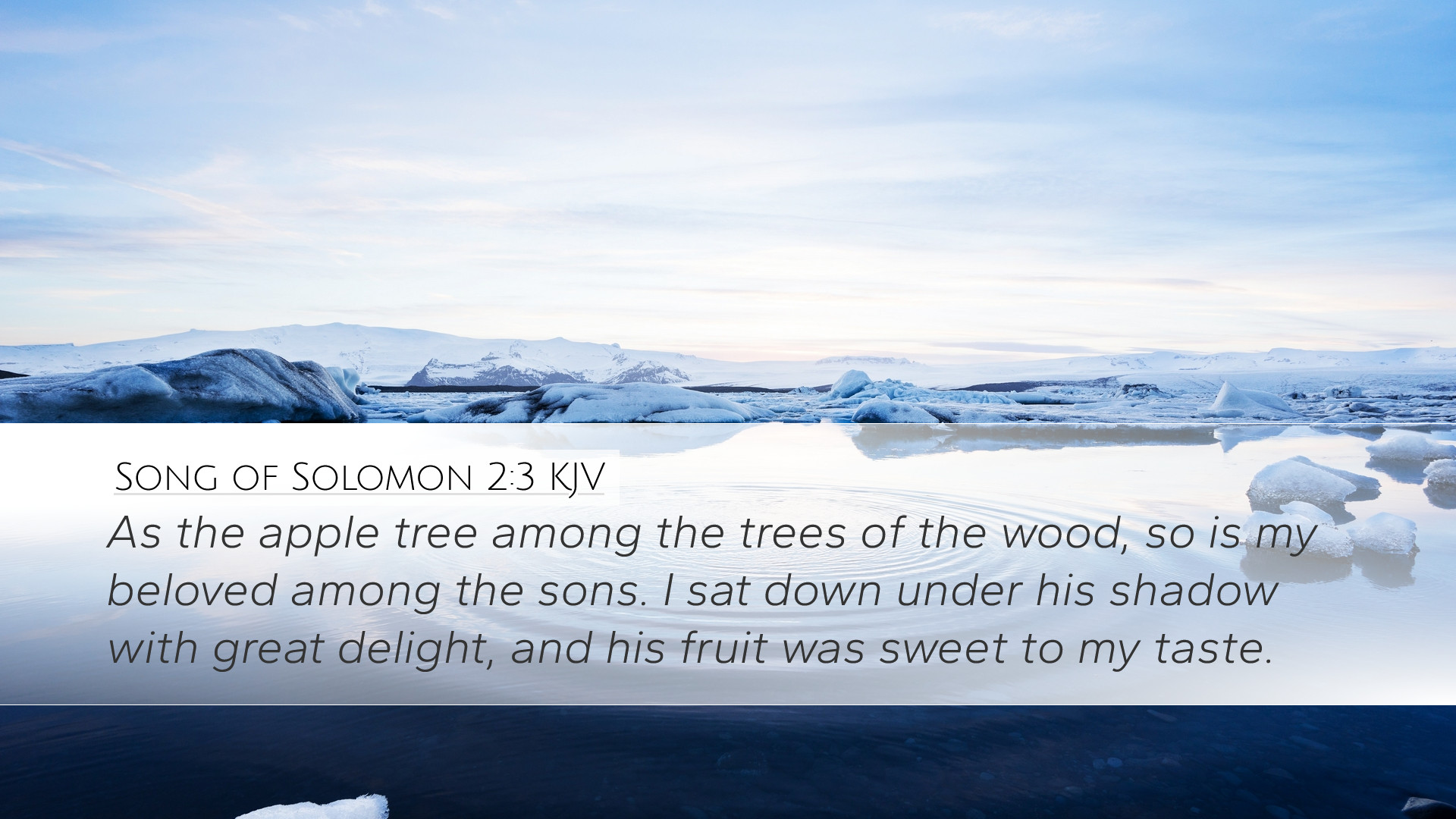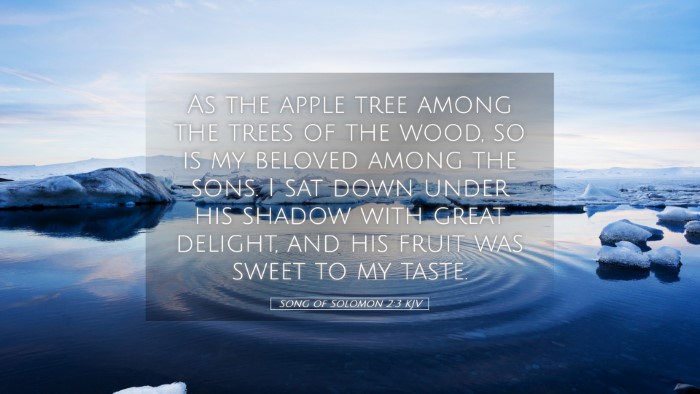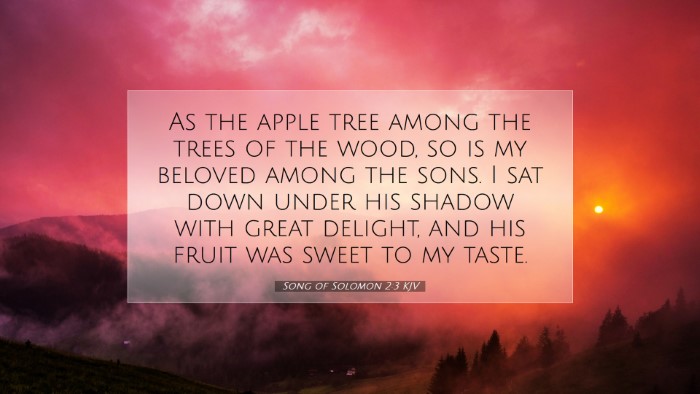Commentary on Song of Solomon 2:3
"As the apple tree among the trees of the wood, so is my beloved among the sons. I sat down under his shadow with great delight, and his fruit was sweet to my taste."
Introduction
The Song of Solomon, also known as the Song of Songs, is a poetic text celebrated for its rich imagery and deep symbolism. In 2:3, the Shulammite woman uses the metaphor of an apple tree to articulate her love for her beloved. Commentators throughout history have focused on the allegorical nature of this poem, emphasizing the emotional and spiritual exchanges between the lovers as well as the broader implications for the relationship between God and His people.
Verse Context
This verse appears in a section where the Shulammite reflects on the nature of her love and her experience of intimacy. The context builds upon themes of affection, desire, and the sweetness of love. The allegorical reading of the Song often leads to spiritual interpretations connecting these verses to God's love for His people.
Commentary Insights
Various commentators provide enlightening perspectives on this verse:
Matthew Henry's Commentary
Matthew Henry reflects on the imagery of the apple tree, suggesting that it represents the beloved's exceptional quality among others. He notes that the apple tree symbolizes beauty, sweetness, and a source of refreshment in a dry, barren world. Henry emphasizes the protective and nourishing nature of love, as the Shulammite finds shelter under the shadow of her beloved. This imagery resonates with the Christian understanding of finding refuge in Christ, illustrating how believers experience delight in His presence.
Albert Barnes' Notes on the Bible
Albert Barnes elaborates on the significance of the apple tree by comparing it with other trees and emphasizing its unique qualities. He posits that the apple tree's fruit signifies the blessings and delights found in a close relationship. The act of sitting under the tree's shadow conveys a sense of comfort and contentment. Barnes notes that the phrase “great delight” suggests a profound emotional and spiritual satisfaction, illustrating the divine aspect of love that transcends mere physical attraction.
Adam Clarke's Commentary
Adam Clarke views this verse as an expression of the deep longing experienced in love. He interprets the apple tree as a symbol of abundance and sustenance, suggesting that the Shulammite finds both physical and emotional nourishment in her beloved. Clarke emphasizes the phrase "I sat down under his shadow" as a powerful depiction of trust and safety, indicating that true love provides a protective space where one can find peace. He also interprets the "sweet fruit" as a metaphor for the rewards that come from a loving relationship, both in the physical and spiritual realms.
Theological Implications
This verse speaks to the nature of love as a reflection of the divine. The metaphor of the apple tree can be viewed as a representation of Christ, the ultimate source of life and sustenance. Believers are called to find their security and fulfillment in their relationship with Him. Just as the Shulammite finds satisfaction under the shade of her beloved, so too do Christians find joy and peace in Christ. This metaphor encourages a deeper understanding of the Christian life as one that embraces both affection for God and community with others.
Applications for Pastoral Ministry
For pastors, this verse serves as an excellent reminder of the importance of fostering loving relationships within the community. Pastoral care that mirrors the attributes of the apple tree—being a source of refuge, nourishment, and joy—can transform congregational dynamics. The emphasis on delighting in the presence of loved ones offers a framework for marriage counseling and mentoring relationships, underscoring the sweetness and sanctity of love.
Conclusion
Song of Solomon 2:3 invites readers into a rich exploration of the themes of love, intimacy, and divine connection. The insights gleaned from the commentaries of Henry, Barnes, and Clarke deepen our understanding of this verse and its application to our spiritual lives. As scholars and students of the Bible reflect on this poignant metaphor, they are reminded of the profound joy and sustenance that comes from love—both earthly and divine.


